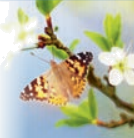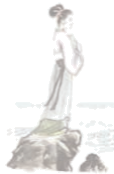1 . A FEW SIMPLE FORMS OF ENGLISH POEMS
There are various reasons why people compose poetry. Some poems tell a story or describe a certain image in the reader’s mind. Others try to convey certain feelings such as joy and sorrow. The distinctive characteristics of poetry often include economical use of words, descriptive and vivid language, integrated imagery, literary devices such as similes and metaphors, and arrangement of words, lines, rhymes, and rhythm. Poets use many different forms of poetry to express themselves. Now we will look at a few of the simpler forms.
Some of the first poems a young child learns in English are nursery rhymes. They are usually the traditional poems or folk songs. The language of these rhymes, like Poem A, is to the point but has a storyline. Many children enjoy nursery rhymes because they rhyme, have a strong rhythm, and often repeat the same words. The poems may not make sense and even seem contradictory, but they are easy to learn and recite. By playing with the words in nursery rhymes, children learn about language.
One of the simplest kinds of poem is the “list poem”, which contains a list of things, people, ideas, or descriptions that develop a particular theme. List poems have a flexible line length and repeated phrases which give both a pattern and a rhythm to the poem. Some rhyme (like B and C), while others do not. Another simple form of poem that amateurs can easily write is the cinquain, which is made up of five lines. With these, you can convey a strong picture or a certain mood in just a few words. Look at the example (D).
Haiku is a Japanese form of poetry that consists of 17 syllables. It has a format of three lines, containing 5, 7, and 5 syllables respectively. It is not a traditional form of English poetry, but is very popular with English writers. It is easy to write and, like the cinquain, can give a clear picture and create a special feeling using very few words. The haiku poem (E) on the right is a translation from Japanese, which shows a moment in the life of a delicate butterfly.
English speakers also enjoy poems from China, those from the Tang Dynasty in particular. A lot of Tang poetry has been translated into English, such as this one (F).
With so many different forms of poetry to choose from, you may eventually want to write poems of your own. Give it a try!
| A | Hush, little baby, don’t say a word, Papa’s gonna buy you a mockingbird. If that mockingbird won’t sing, Papa’s gonna buy you a diamond ring. If that diamond ring turns to brass, Papa’s gonna buy you a looking glass. If that looking glass gets broke, Papa’s gonna buy you a billy goat. If that billy goat won’t pull, Papa’s gonna buy you a cart and bull. |
|
| B | Only One Mother Hundreds of stars in the pretty sky, Hundreds of shells on the shore together, Hundreds of birds that go singing by, Hundreds of lambs in the sunny weather. Hundreds of dewdrops to greet the dawn, Hundreds of bees in the purple clover, Hundreds of butterflies on the lawn, But only one mother the wide world over. George Cooper |
|
| C | LIFE Life can be good,Life can be bad, Life is mostly cheerful, but sometimes sad Life can be dreams, Life can be great thoughts Life can mean a person, Sitting in court. |
|
| D | Brother Beautiful, athletic Teasing, shouting, laughing Friend and enemy too Mine |
|
| E | A fallen blossom Is coming back to the branch. Look, a butterfly! |
|
| F | Where she awaits her husband On and on the river flows. Never looking back, Transformed into stone. Day by day upon the mountain top, wind and rain revolve. Should the traveller return, this stone would utter speech. Wang Jian |
|
| Type of poem | Characteristics | Example | Topics and poetic devices |
| Nursery rhyme | • concrete but creative language | A | • love between father and baby • rhymes, repetition |
| List poem | B | ||
| C | |||
| Cinquain | D | ||
| Haiku | E | ||
| Tang poem | F |
WHAT’S IN A NAME?
The United Kingdom, Great Britain, Britain, England-many people are confused by what these different names mean. So what is the difference between them, if any? Getting to know a little bit about British history will help you solve this puzzle.
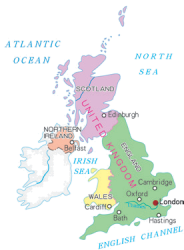
In the 16th century, the nearby country of Wales was joined to the Kingdom of England. Later, in the 18th century, the country Scotland was joined to create the Kingdom of Great Britain. In the 19th century, the Kingdom of Ireland was added to create the United Kingdom of Great Britain and Ireland. Finally, in the 20th century, the southern part of Ireland broke away from the UK, which resulted in the full name we have today: the United Kingdom of Great Britain and Northern Ireland. Most people just use the shortened name: “the United Kingdom” or “the UK”. People from the UK are called “British”, which means the UK is also often referred to as Britain or Great Britain.
The four countries that belong to the United Kingdom work together in some areas. They use the same flag, known as the Union Jack, as well as share the same currency and military defence. However, they also have some differences. For example, England, Wales, Scotland, and Northern Ireland all have different education systems and legal systems. They also have their own traditions, like their own national days and national dishes. And they even have their own football teams for competitions like the World Cup!
The United Kingdom has a long and interesting history to explore, which can help you understand much more about the country and its traditions. Almost everywhere you go in the UK, you will be surrounded by evidence of four different groups of people who took over at different times throughout history. The first group, the Romans, came in the first century. Some of their great achievements included building towns and roads. Next, the Anglo-Saxons arrived in the fifth century. They introduced the beginnings of the English language, and changed the way people built houses. The Vikings came in the eighth century, left behind lots of new vocabulary, and also the names of many locations across the UK. The last group were the Normans. They conquered England after the well-known Battle of Hastings in the 11th century. They had castles built all around England, and made changes to the legal system. The Normans were French, so many French words slowly entered into the English language.
There is so much more to learn about the interesting history and culture of the United Kingdom. Studying the history of the country will make your visit much more enjoyable. The capital city London is a great place to start, as it is an ancient port city that has a history dating all the way back to Roman times. There are countless historic sites to explore, and lots of museums with ancient relics from all over the UK. The UK is a fascinating mix of history and modern culture, with both new and old traditions. If you keep your eyes open, you will be surprised to find that you can see both its past and its present.
| When? | What happened? | What changed? |
| Romans arrived | ||
| Anglo-Saxons came | ||
| Vikings came | ||
| 11th century | ||
| 16th century | / | |
| 18th century | ||
| 19th century | ||
| 20th century |
A.people to give music lessons
B.choir members
C.people to run food stands (打理食品摊位的人员)
D.people to sell festival tickets
E.people to sell music CDs
F.people to set up equipment (布置设备的人员)
G.musical performers
A. Tadpoles Searching for Mother
B. Feeling from Mountain and Water
C. The Cowboy’s Flute
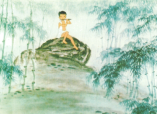
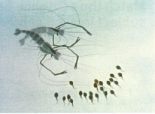
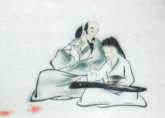
1.
2.
3.
THE STONE IN THE ROAD
Once upon a time there was a king who often thought, “Nothing good can come to a nation whose people only complain and expect others to solve their problems.” One day, he had an idea.
Early one morning, the king disguised himself and went to a local village. He placed a large stone in the middle of the main street and hid gold coins under the stone. Then he hid behind a huge maple tree and watched.
The first person down the street was a milkman with his cart. He crashed into the stone, spilling the milk everywhere. “What fool put this stone here?” he shouted. He picked himself up and angrily went away.
After a while, a group of women came along, each balancing a pot of water on her head. One woman tripped over the stone and her water pot went crashing to the ground. She picked herself up and limped away in tears. Neither she nor her friends thought about moving the stone out of the road.
The king watched all day as many people complained about the stone, but he found nobody making an attempt to move it. The king was in despair. “Is there no one in this village who feels any responsibility to keep their neighbours from harm?”
Just then, the king saw a young girl coming along. She was the daughter of a local farmer. She had been working all day and was very tired. But when she saw the stone, she said to herself, “This stone is a danger to anyone who comes down the street after dark. I’ll move it out of the way.”
The girl pushed the stone with all her might. After a great deal of effort, she finally succeeded in moving it to the side of the street. Imagine her surprise when she saw the gold coins where the stone had been!
Just then, the king stepped out from behind the tree. “Oh sir,” the girl said, “does this gold belong to you? If not, we surely must find the owner, for he will certainly miss it.”
The king said, “My dear, the gold is mine. I put it in the road and moved the stone over it. Now the gold is yours, because you are the only person who has learnt the lesson I wanted to teach my people.”
1. Fast readingThis passage is a
2. Careful reading
True or False
(1) Early one morning, the king went to a local village, followed by his attendants.
(2) The milkman saw the the large stone in the middle of the street and went away round it.
(3) The group of women all tripped over the stone and their water pots went crashing to the ground.
(4) At last a girl pushed the stone to the side of the street and found the gold coins.
(5) The girl found the owner of the gold coins and returned them.
MY AMAZING NAADAM EXPERIENCE
I experienced the Naadam Festival in China’s Inner Mongolia Autonomous Region for the first time this year. The festival falls on the fourth day of the sixth month of the lunar calendar, usually lasting for three days. Naadam means “games” in Mongolian, and it is represented by three events: horse racing, wrestling, and archery, which are all so exciting to watch!
On the first day, I set off to the games early with my friend Burin. I saw a lot of people wearing fancy Mongolian robes. Some were feeding their horses, some were practising archery, and others were chatting or taking photographs. Burin told me that Mongolians travel every year from near and far to attend the festival, just as their ancestors had done for centuries.
After the opening ceremony and some amazing performances, the wrestling competition began. Mongolian wrestling is different from the wrestling in the Olympic Games. There are no rounds, and wrestlers are not separated by weight. The wrestler loses if any part of his body above his knee touches the ground. After singing some songs, the competitors danced onto the green field, waving their arms in the air as if they were eagles. I was quite moved by their show of strength and grace.
I absolutely enjoyed the archery, too, but the horse races were my favourite part. However, I was surprised to see that the riders were boys and girls! I heard it is because children are lighter and the horses can run faster and farther. At first, I was a little worried about the children’s safety, but Burin said, “Don’t worry. They’ve been riding horsed all their lives. They’ll be just fine.” That was the moment I started to understand why people say “Horses are at the heart of Mongolian culture”.
I’m finally back home now, feeling really tired, but celebrating Naadam with my friend was totally worth it. He invited me back for the winter to stay in a traditional Mongolian tent and eat hot pot. I can’t wait!
1. What does Naadam mean?2. In the passage, the author describes what he sees and hears while attending
3. (1).The Naadam Festival usually lasts for a week.
(2).The Naadam Festival has a history of several hundred years.
(3).Mongolian wrestling is the same as the wrestling in the Olympic Games.
(4).At the Naadam Festival, of the three events, the author likes wrestling best.
4. How long does the Naadam Festival last?
| A.2 days. | B.3 days. | C.4 days. | D.5 days. |
| A.has a long history |
| B.only allows men to take part in |
| C.has only three events |
| D.falls on the fifth day of the sixth month |
| A.Mongolian wrestling is the same as the wrestling in the Olympic Games. |
| B.The archery was my favorite part of the three sports events. |
| C.The riders were boys and girls because they are lighter. |
| D.I was not worried about the children’s safety at all. |
VOLUNTEERING IN THE BUSH
8 March
I just got a parcel from home! It took about two weeks to arrive, and it was a bit damaged, but it was so nice to get some sweets and jam from home; I’ve been dying to have some of my favourite sweets, and it’s always nice to get mail!
So I’ve been here in the jungle for about a month now. My secondary school is a bush school. The classrooms are made of bamboo, with clay floors and roofs of grass. It takes me only a few minutes to walk to school down a dusty track covered in weeds. When I reach the school grounds, I’m greeted by a chorus of “good morning” from the boys. Unlike students in our country, these boys do not wear cotton uniforms, and many of them also have to walk a long way, sometimes for up to two hours, just to get to school.
There’s no electricity, running water or even textbooks, not to mention laptops, tablets, or other modern devices! All the students have are pencils, rubbers, and paper. I’m still trying to adapt to these conditions. I’ve had to become much more imaginative in my teaching. Science is my most challenging subject as my students have no concept of doing experiments. There is no equipment, and since there isn’t even a washroom, if I need water I have to carry it from my house in a basin! It’s important not to be too rigid about rules here, too. The other day I was showing the boys a chemistry experiment when, before I knew it, the mixture was bubbling out of the test tube spilling everywhere! The class became a circus as the boys, who had never come across anything like this before, started jumping out of the windows. Sometimes I wonder how relevant chemistry is to these students — few will ever become chemists — and most will be going back to their villages after Year 8 anyway. To be honest, I doubt whether I’m making any difference to these boys’ lives at all.
chemistry is to these students — few will ever become chemists — and most will be going back to their villages after Year 8 anyway. To be honest, I doubt whether I’m making any difference to these boys’ lives at all.
17 April
Last weekend I made my first visit to a remote village, home to one of our students, Tombe. Another teacher and I walked for two and a half hours to get there — first, up a mountain from where we had fantastic views, and then down a shaded path to the valley below. When we arrived at the village, Tombe’s mother, Kiak, saw us coming and started crying “ieee ieee”. We shook hands with all the villagers. Everyone seemed to be related to Tombe.
Tombe’s father, Mukap, a man with a strong jaw and a wrinkled forehead, led us to his house, a low, round bamboo hut with no windows, with a door just big enough to get through, and with grass sticking out of the roof — this shows it is a man’s house. Such housing is dark inside so it took time for our eyes to adjust. Fresh grass had been laid on the floor and there was a platform for Jenny and me to sleep on. There was a fireplace in the centre of the hut. The only possessions I could see were one broom, a few saucers, a kettle, cups, pans, and a couple of jars.
Mukap built a fire outside and laid stones on it to heat. He then placed the hot stones in an empty oil drum with kau kau (sweet potato), ripe corn, and greens. He then covered the vegetables with banana leaves and left them to steam. It smelled delicious. We ate inside the hut sitting round the fire. I loved listening to the family talking softly to each other in their language, even though I could not participate much in the conversation. Luckily, Tombe interpreted for us.
Later, I noticed a can standing upside down on the grill over the fire. After a while, Tombe threw it out of the doorway. Tombe told me that the can was heated to dry out the leftover food. His family believes that leftovers attract bad spirits in the night, so any leftover food is dried up in a can and the can is then thrown out of the hut.
We left the village the next morning after many goodbyes and firm handshakes. My muscles were aching and my knees shaking as we dragged ourselves down the mountain towards home. That evening I fell happily into bed. It was such a privilege to have spent a day with Tombe’s family.
1. What’s the main idea of the text?| A.Jo went to a bush school to visit friends. |
| B.Jo’s experience as a volunteer in the bush. |
| C.Introduction of a bush school. |
| D.Introduction of Tombe’s home in the village. |
| A.Jo and another teacher visited Tombe’s home in the village. B.Getting mail from home made Jo feel nice. C.The school where Jo worked and Jo’s work at school. |
Part 2(Paras.2-3)
Part 3(Paras.4-8)
3. What’s the purpose of the author in writing the blog?
| A.To tell us her teaching life in the bush school as a volunteer. |
| B.To tell us her learning life in the bush school as a volunteer. |
| C.To tell us that she couldn’t get any money by teaching the poor students. |
| D.To tell us how happy she was in the small village. |
| A.Because they were frightened by the bubbling mixture. |
| B.Because they couldn’t stand the terrible smell of the mixture. |
| C.Because they didn’t like doing chemistry experiments. |
| D.Because they knew chemistry was not relevant to them. |
| A.Because this was Jo’s first visit to a remote village. |
| B.Because she was expressing her friendliness and warmth. |
| C.Because Jo walked for two and a half hours to get there. |
| D.Because she was afraid of strangers. |
| A.Happy. | B.Sad. |
| C.Worried. | D.Upset. |
Jo worked at a bush school whose classrooms
(1) There is no equipment, and since there isn’t even a washroom, if I need water I have to carry it from my house in a basin!
(2) The class became a circus as the boys, who had never come across anything like this before, started jumping out of the windows.
(3) His family believes that leftovers attract bad spirits in the night, so any leftover food is dried up in a can and the can is then thrown out of the hut.
What can we infer about those mummies?
| A.They had their own characteristic in culture. |
| B.Their genes had much in common with their neighbors. |
| C.They seemed to isolate themselves from other groups. |
| D.They developed faster than others. |
9 . On Tuesday, Nicholas went out again to find help. He had walked for about a mile when a volunteer searcher found him. After two days stuck in the snow, Nicholas was saved.
On Tuesday, Nicholas ______.| A.returned to his shelter safely | B.was saved by a searcher |
| C.got stuck in the snow | D.stayed where he was |
10 . One Sunday, Nicholas, a teenager, went skiing at Sugarloaf Mountain in Maine. In the early afternoon, when he was planning to go home, a fierce storm swept into the area. Unable to see far, he accidentally turned off the path. Before he knew it, Nicholas was lost, all alone! He didn’t have food, water, a phone, or other supplies. He was getting colder by the minute.
What happened to Nicholas one Sunday afternoon?| A.He got lost. | B.He broke his skis. | C.He hurt his eyes. | D.He caught a cold. |





